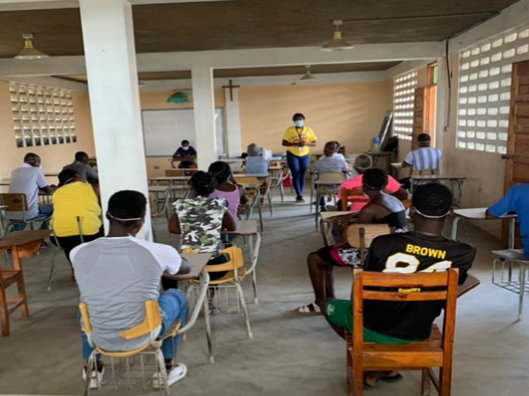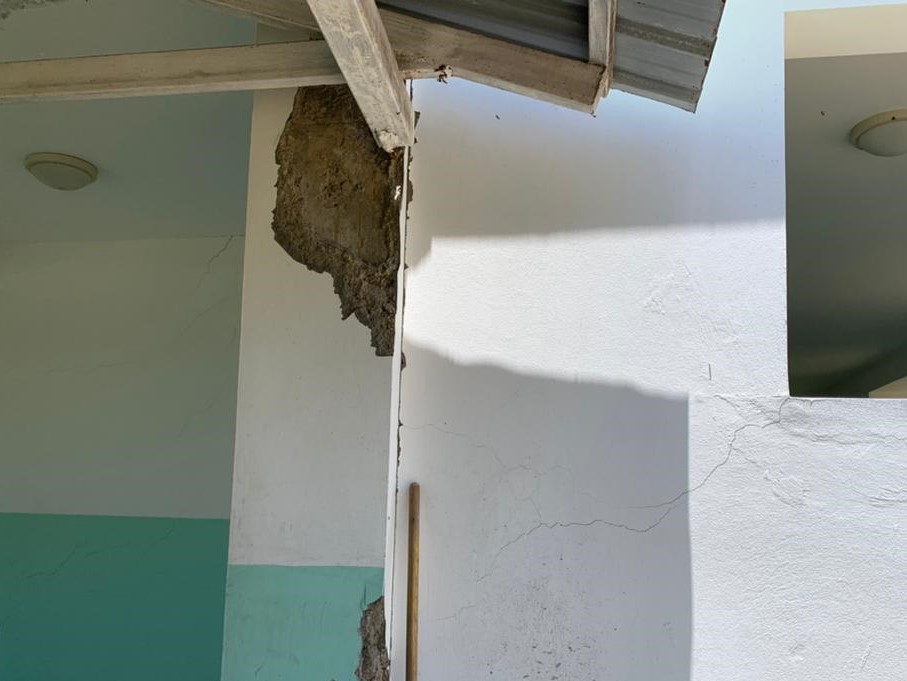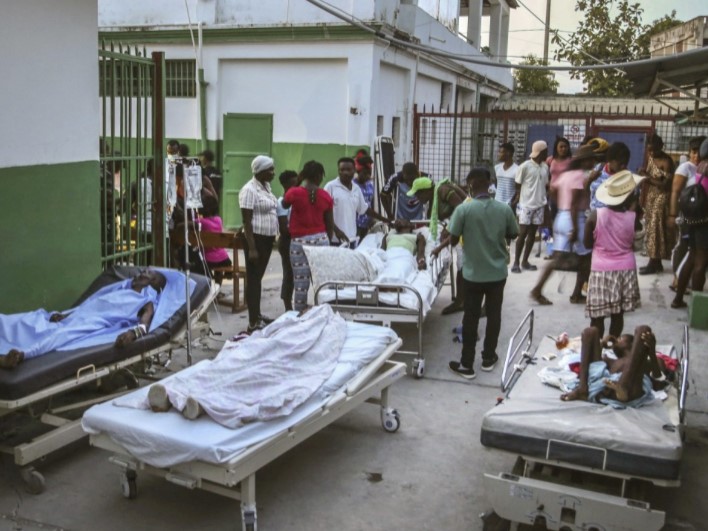A devastating earthquake. A political tragedy. The surging COVID-19 pandemic. And, behind it all, a continuing struggle with the most severe HIV epidemic in the Western Hemisphere. The nation of Haiti is no stranger to challenges. And through them all, ICAP has been on the ground, working with the country to support the health of its people.
In March 2020, ICAP at Columbia University (ICAP), in collaboration with the Haiti Ministry of Health (MoH) and funded by the U.S. President’s Emergency Plan for AIDS Relief (PEPFAR) through the U.S. Centers for Disease Control and Prevention (CDC), launched a partnership with the Office d’Assurance du Travail et de la Maternité (OFATMA) as part of the Haiti Programmatic Support Award (Haiti PSA). As OFATMA is the only public health insurance network in the country providing subsidized health services to public and private sector employees, factory workers, and non-insured individuals, the collaboration affords Haitians of modest means access to high-quality, no-cost HIV services in locations convenient to where they work and live. The project allowed OFATMA to build its capacity as a PEPFAR-supported provider.
Just as the project was getting off the ground, the first cases of COVID-19 were identified in Haiti. As the pandemic intensified, the initial implementation plan for the Haiti PSA project faced domestic travel restrictions imposed as a means to reduce COVID-19 transmission, and prolonged delays in procurement of necessary equipment due to pandemic-related disruptions in global supply chains. During this time, ICAP switched gears to ensure that infection prevention and control measures were in place across all facilities and pivoted from in-person to remote training of staff to align with national restrictions on in person meetings.
Since the start of the PSA Haiti project, ICAP leveraged its expertise to assess the capacity of the health facility workers to assume new roles and responsibilities while preventing COVID-19 transmission, managing COVID-19 cases, and adjusting to new roles as first responders. ICAP staff worked alongside OFATMA to understand the immediate needs of each site and created a plan to roll out comprehensive HIV services in three hospitals by September 2020 and in another three facilities by December 2020.

In-person Training Session by a Community Nurse in Cap-Haitien
To continue with planned activities during the global pandemic, project staff developed innovative approaches to strengthen HIV and health care services in each facility. For example, between August and December 2020, ICAP coordinated in-person and remote training sessions with over 280 OFATMA staff members. ICAP also provided virtual technical assistance and support to health facilities as they improved care services.
These capacity-building activities proved valuable when Haiti faced two sequential natural disasters in the midst of a prolonged national political crisis. On August 14 2021, a 7.2 magnitude earthquake shattered villages, towns and cities on Haiti’s southern peninsula. Only two days later, Tropical Storm Grace passed through the country, bringing flooding and mudslides in areas damaged by the earthquake and hindering rescue and recovery efforts. More than 2,200 people died in these twin natural disasters, and over 12,000 were injured. According to UNOCHA, nearly 53,000 homes were destroyed and over 77,000 sustained damage – leaving about 800,000 people in need of emergency humanitarian aid. These natural disasters, compounded by chronic political turmoil that culminated in the assassination of President Jovenel Moise in July, have drained the people of Haiti of essential resources – including resources for health.

Facility Damage at the OFATMA-Les Cayes Facility After the Earthquake and Tropical Storm Grace
Located at the epicenter of the earthquake, the OFATMA-Les Cayes health clinic suffered major infrastructural damages and interruption in services. The ICAP-supported facility lost access to electricity and clean water as well a reliable internet and network services. Facility staff set up tents to create a safe outdoor space to attend to those who needed urgent care. Currently, ICAP is supporting OFATMA by providing emergency supplies to be distributed to patients, such as clean water, hand sanitizer, and masks, and medical supplies to the facilities, such as clean gloves, sterile gauzes, blood collection tubes, and blood pressure machines.
“Just as ICAP rapidly responded to the emerging needs of the COVID-19 pandemic in Haiti last year, our team has done the same for the recent earthquake,” said Julie Franks, PhD, technical advisor of ICAP’s clinical and training unit.
“Our teams are working quickly to support the ICAP supported health facilities as the country faces a new pandemic, ongoing unrest, political violence, and several natural disasters annually,” said Barbara Roussel, MD, Msc, ICAP’s country director in Haiti. “The Haiti PSA project continued to work closely with OFATMA to improve their HIV and health services, even in the midst of natural and political crises.”
A major global health organization that has been improving public health in countries around the world for over 15 years, ICAP works to transform the health of populations through innovation, science, and global collaboration. Based at Columbia University in New York City, where it is part of the Mailman School of Public Health, ICAP has projects in more than 30 countries, working side-by-side with ministries of health and local partners to confront some of the world’s toughest health challenges. Through meaningful research, tailored technical assistance, effective training and education programs, and rigorous monitoring and evaluation of public health interventions, ICAP aims to realize a global vision of healthy people, empowered communities, and thriving societies. For more information about ICAP, visit: icap.columbia.edu.








